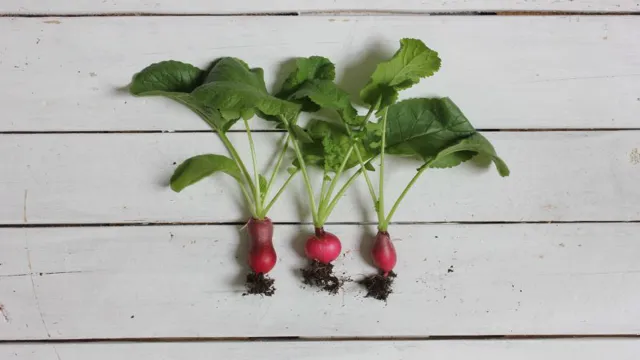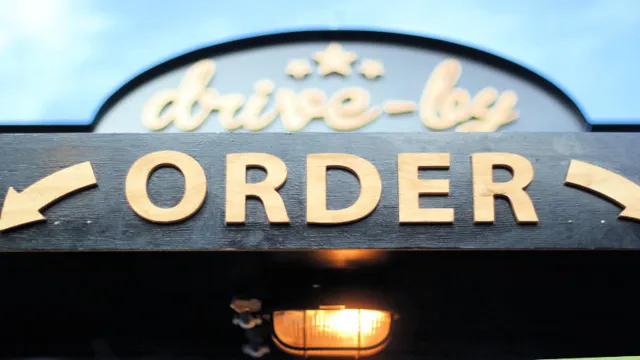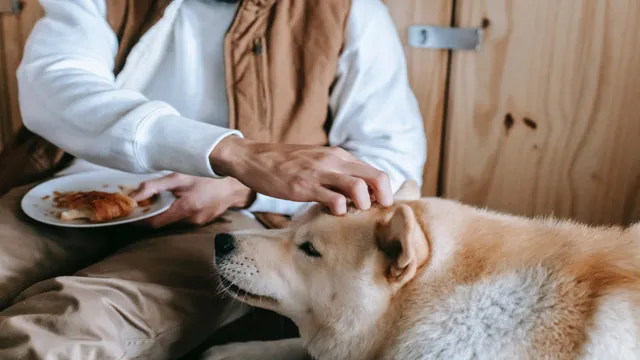Healthy Breakfast Ideas for Dogs: What Can Dogs Eat?
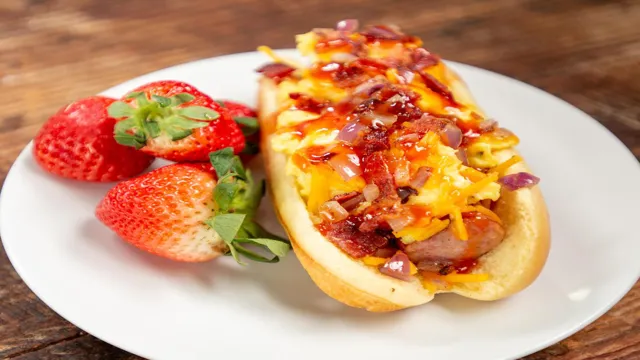
Are you looking for the best way to start your pup’s day off on the right paw? Fret not – breakfast for dogs doesn’t have to be boring! There are plenty of healthy, delicious, and nutritious options that your pup will love. In this blog, we’ll discuss what can dogs eat for breakfast and provide breakfast ideas for your pup. From simple to complex, we’ll cover a wide range of breakfast options that your pup will happily devour. So, let’s get started on a tasty journey of discovering the best breakfast for your furry friend!
Healthy Breakfast Ideas for Dogs
Do you want to treat your pup to a special breakfast? Breakfast is an important meal for both humans and dogs alike, so why not make it extra special for your four-legged friend? After all, a healthy breakfast can help keep your pup energized throughout the day. When it comes to breakfast for your pup, the most important thing to remember is to keep it balanced. A healthy breakfast should include a combination of proteins, healthy fats, carbohydrates, and vitamins and minerals. One great breakfast idea for your pup is to give them a mixture of cooked meat, eggs, and vegetables. This is a great way to provide your pup with all the necessary vitamins and minerals they need in the morning.
Consider adding cooked turkey, chicken, beef, or salmon to your pup’s breakfast bowl, along with cooked eggs and vegetables. For a lighter breakfast, you can also give your pup a mixture of cooked oatmeal and cottage cheese. This simple breakfast is high in protein and low in fat, and is sure to keep your pup energized throughout the day. If you’re looking for an even simpler breakfast for your pup, try feeding them a meal of cooked rice, veggies, and lean proteins. This is an easy-to-prepare meal that is low in fat and high in protein.
You can also add a few slices of apples or bananas for a sweet treat. Finally, if you’re looking for a more convenient breakfast option, there are plenty of healthy dog food brands that offer breakfast-specific formulas. There are even some brands that make all-natural, grain-free breakfast meals for dogs. No matter which breakfast option you choose for your pup, be sure to keep a few things in mind. Keep the meal balanced and make sure to use fresh ingredients whenever possible.
This will help ensure that your pup gets the most nutritional benefit from their breakfast.
Eggs
Breakfast is an important meal for both humans and dogs, and eggs are often a popular choice. But can dogs eat eggs? The answer is a definite yes! Eggs are a great source of protein for dogs and can provide a delicious and nutritious start to their day. They are also a great way to add variety to a dog’s diet and can be served cooked or raw. When feeding eggs to your dog, it’s important to remember to remove the shells and cook them thoroughly. Additionally, some dogs may be allergic to eggs, so it is important to consult your veterinarian before adding eggs to your dog’s diet.
All in all, eggs are a great breakfast option for dogs and can help keep them happy and healthy.
Yogurt
Breakfast is one of the most important meals of the day, and it’s no different for your pup! One of the best breakfast options for your pup is yogurt. Yogurt is packed with essential nutrients that can help your dog stay healthy and active. Not only is yogurt full of calcium and protein, but it also contains probiotics which can aid in digestion and boost your dog’s immune system. As a bonus, yogurt is a delicious treat that your pup will love! So if you’re looking for a healthy breakfast option for your furry friend, yogurt is a great choice!
Foods To Avoid
When it comes to feeding your pup, one of the most important things to consider is what foods to avoid. When it comes to breakfast, there are certain foods that could potentially be dangerous for your pup, so it’s important to know what is safe to feed them and what to avoid. One of the main foods to avoid is chocolate. Chocolate contains a compound called theobromine, which is toxic to dogs and can cause vomiting, diarrhea, and in some cases, death. Even small amounts of chocolate can be dangerous, so it’s best to avoid giving it to your pup altogether.
Another food to avoid is grapes and raisins, which can be toxic to dogs and cause kidney failure. While some dogs may be able to tolerate a small amount of these foods, it is best to avoid them altogether, as it can be hard to know what is safe for your pup. Other foods to avoid include onions and garlic, which can cause anemia in dogs if eaten in large quantities. Additionally, dairy products can be hard for some dogs to digest, so it’s best to avoid them at breakfast. When it comes to what you should feed your pup for breakfast, the best option is to stick to a high-quality dog food that is specifically designed for their nutritional needs.
If you want to add a little something extra to their breakfast, there are some safe options, such as pieces of cooked chicken, cooked eggs, or even some cooked vegetables. Remember to always consult with your veterinarian before making any significant changes to your pup’s diet, and make sure to always provide plenty of fresh, clean water. By following these guidelines, you can help ensure that your pup stays healthy and happy!
Chocolate
It’s no secret that chocolate is a beloved treat by many, but when it comes to your pup, it’s important to be mindful of what you feed them for breakfast. Dogs can’t eat chocolate – it’s actually toxic to them due to a chemical in it called theobromine. However, there are plenty of other tasty and nutritious options for your pup to enjoy in the morning, such as scrambled eggs, oatmeal, fruits, and vegetables. With a little creativity and careful ingredient selection, you can craft a breakfast that your four-legged family member will love.
Onions
Breakfast is a meal that can be enjoyed by all members of the family, even our furry friends! While the typical breakfast foods like eggs and toast are safe for canines, it’s important to remember that not all breakfast foods are good for dogs. Onions, for example, can be harmful to a dog’s digestive system, so it’s best to avoid giving your pup anything containing onions for breakfast. Luckily, there are plenty of other breakfast options for your pup, including scrambled eggs without added onions, plain yogurt, and oatmeal. With some creativity and simple ingredients, you can easily whip up a delicious and healthy breakfast for your pup each morning.
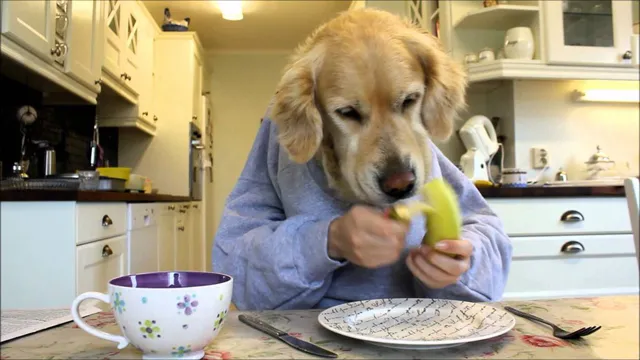
Grapes
Breakfast is the most important meal of the day for both humans and dogs alike. While humans may typically enjoy a bowl of cereal or a stack of pancakes, there are certain foods that are safe for dogs to eat in the morning. Grapes may be a surprising option for some, but they can actually make a great and healthy addition to a pup’s breakfast. Not only are grapes high in vitamins, but they also provide a healthy dose of fiber, making them an ideal snack for a pup’s digestive system. Plus, their sweet and juicy taste is sure to please even the pickiest of eaters.
So if you’re looking for a tasty and nutritious way to start your pup’s day, consider adding some grapes to your canine’s breakfast plate.
Tips for Feeding Dogs
It’s no secret that feeding your pup a healthy, nutritious breakfast is one of the most important parts of taking care of your pup. But with so many different foods available, it can be hard to know what to feed them. The good news is that there are plenty of options when it comes to feeding your pup a healthy breakfast. Here are some tips to help you figure out what to feed your pup for breakfast. • Start with the basics – Make sure that whatever you feed your pup for breakfast includes the basics like protein, carbohydrates, and healthy fats.
This will help to keep them full and provide them with the energy they need to get through the day. • Choose nutrient-dense foods – Look for foods that are rich in vitamins, minerals, and other nutrients. This includes things like fresh vegetables, fruits, and lean proteins like eggs, fish, and poultry. • Balance the meal – Just like humans, dogs need a balanced meal for breakfast. This means that you should aim for a combination of proteins, carbohydrates, and healthy fats.
For example, you could feed your pup cooked oatmeal with diced apples and a piece of cooked chicken. • Avoid processed foods – While there are some processed foods that are okay for dogs, it’s best to avoid them as much as possible. This includes things like hot dogs and other processed meats. Instead, opt for wholesome, natural foods that are free from preservatives and additives. • Limit treats – Treats are great for rewarding your pup for good behavior, but try to limit how many treats you give them for breakfast.
This will help ensure that your pup is getting the right balance of nutrients in their meal. Feeding your dog a healthy, balanced breakfast is essential for keeping them happy and healthy. By following these tips, you can make sure that your pup is getting all the nutrients they need to start the day off right.
Consult Vet
Start your pup’s day off right with a nutritious breakfast! As pet owners, it’s important to make sure our beloved companions are getting all the nutrients they need to stay healthy and happy. While all dogs are different, and their specific nutritional needs will vary, there are some generally accepted breakfast options that can provide your pup with a tasty and wholesome meal. Some great breakfast ideas for your pup include scrambled eggs, cooked oats, boiled chicken, and even specially formulated pet food. Additionally, you can also provide your pup with some vegetables, like carrots or green beans, as a tasty treat! No matter what you decide to feed your pup, it’s important to consult with your vet to make sure that the food you provide is safe and nutritious. With the right breakfast, your pup will have the energy they need to start the day off right!
Introduce New Foods Slowly
Introducing new foods to your pup can be a tricky proposition. To make sure they adjust to the new flavors and textures, it’s best to introduce them slowly. But, the age-old question remains: What can dogs eat for breakfast? The answer is simple: the same foods you eat! However, it’s important to remember to avoid foods like chocolate, grapes, onions, and garlic that may be toxic to dogs. Instead, opt for nutritious and healthy options like oatmeal, yogurt, eggs, and cooked vegetables. With a little bit of trial and error, you can find the perfect breakfast food for your furry companion.
Conclusion
When it comes to breakfast, dogs should always stay away from the table and stick to their kibble. But if you want to give your pup something special, there are plenty of healthy, delicious, and canine-approved options to choose from, such as eggs, oatmeal, cottage cheese, yogurt, and boiled chicken. Just remember to keep it simple and stick to the basics. After all, it’s just breakfast – and dogs are always better off with a full tummy!”
FAQs
What can dogs eat for breakfast?
Dogs can eat a variety of foods for breakfast, including eggs, oatmeal, vegetables, and fruits.

